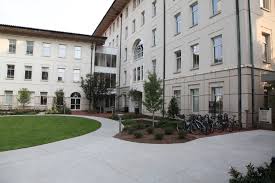Emory Professor Emeritus Robert DeHaan, who was a researcher and professor at Emory’s School of Medicine, died on Oct. 29. He was 82.
DeHann, who founded the Elementary Science Education Partners (ESEP) program and the Emory Center for Ethics, died from complications stemming from pneumonia.
He came to Emory in 1973 to study the human heart and perform cutting-edge research on the electrophysiology of heartbeats, according to a Nov. 5 University press release.
Criss Hartzell, professor of cellular biology in the Emory School of Medicine, said one of DeHaan’s real legacies was his project grant that coordinated about five different labs in order to work on cardiac development.
“There were a lot of people working together to try and solve these problems,” he said.
Hartzell said DeHaan studied the development of the heart during embryogenesis through time-lapse videos of chick development. He took the two groups of cells that come together to form the heart and separated them, discovering that they would form two different hearts and beat at different rates. This led him to explore proteins in the heart membrane of a heart cell that open and close to allow ions through, which determines the heartbeat, Hartzell said.
This led DeHaan to the discovery that the last part of the heart to form is the pacemaker, which set the frequency of beats, Hartzell said.
“Essentially, the rest of his career came out of that basic discovery where he was trying to understand how, during embryonic development, these cells develop the capability of becoming spontaneously excitable,” he said.
In addition to research, DeHaan taught embryology, which was one of the first required classes for medical students, at Emory’s School of Medicine, according to the press release.
DeHaan received the Bruce Alberts Award for Distinguished Contributions to Science Education from the American Society of Cell Biologists as well as the Viktor Hamburger Outstanding Educator Prize from the Society for Developmental Biology, according to the press release.
In 1995, DeHaan switched focus and decided to work on improving the way science was taught in elementary schools, according to Karen Falkenberg, Challenge and Champions director in the Division of Educational Studies and director of the ESEP program.
Falkenberg said, “When his grandson was in elementary school, he realized that the science education that his grandson was getting should have been better.”
Science was not being taught in a hands-on manner, and he sought to change this pattern in order to encourage more young people to choose science as a career, according to Falkenberg.
DeHaan said in a 2001 interview with The Atlanta Journal-Constitution, “If you want kids to become good basketball players, you don’t give them books about basketball history. You get them on the court to play.”
According to Falkenberg, the ESEP program was founded with a five-year grant from the National Science Foundation and changed science instruction for 72 elementary school classrooms in the Atlanta and DeKalb school systems.
This included 1,600 public school teachers who were paired with science students from Emory and other Atlanta universities to team-teach science.
“Many of the elementary teachers don’t have a background in science, so that’s partly what hinders their ability to teach it,” Falkenberg said. “The other part of the program was they didn’t have the materials.”
The ESEP program created materials for teachers, along with a new science curriculum.
Undergraduates in science-related fields would go to the Atlanta schools each week to assist the teachers, according to Falkenberg.
Falkenberg added that many of today’s college students hailing from the Atlanta area directly benefited from this program.
“It had five years of funding, so unfortunately, when the five years were up, we didn’t have any funding, but Atlanta kept the program going in its own way, slightly modified,” Falkenberg said.
DeHaan also served as a creator and director of the Center for Ethics upon its founding in 1990 and held the position through 1993, according to the press release.
According to the Division of Educational Studies website, DeHaan has authored or edited four books and more than 140 research papers.
He has also trained more than 40 graduate students and postdoctoral fellows in his career.
In 1998, he received the Thomas Jefferson Award, which is Emory’s highest honor.
“He was just a really great inquisitive guy, always searching for answers and always wanting to help,” Falkenberg said. “If you didn’t get to meet him, you missed a passing star.”
A campus memorial service for DeHaan was held Nov. 10 at Cannon Chapel.
– By Alyssa Posklensky
The Emory Wheel was founded in 1919 and is currently the only independent, student-run newspaper of Emory University. The Wheel publishes weekly on Wednesdays during the academic year, except during University holidays and scheduled publication intermissions.
The Wheel is financially and editorially independent from the University. All of its content is generated by the Wheel’s more than 100 student staff members and contributing writers, and its printing costs are covered by profits from self-generated advertising sales.




